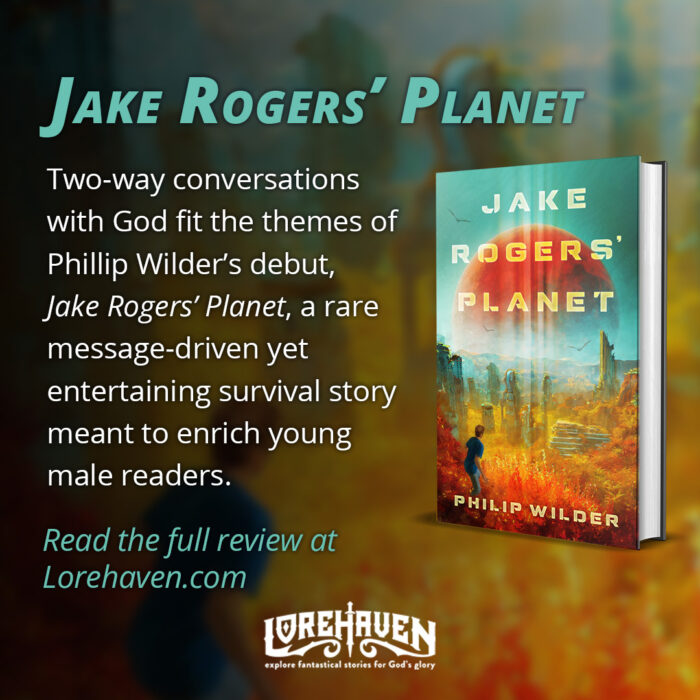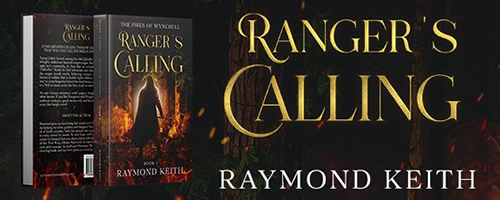What If Your Kids Don’t Read Fantasy?
I can’t tell you how many times I’ve spoken with a mature Christian friend about their uncertainty of the role of fiction and imagination.
They may know it’s good in a nebulous sense, but what should they do when their child suddenly has an appetite for fantasy? What if they ask to read Harry Potter?
They don’t consider themselves fundamentalists, yet they think fantasy poses a real threat to their child.
Parents often ask questions like: Is a specific book or series okay to read? How can we tell if a fantasy novel will encourage our child to use magic?
In all my years of reading fantasy, I have yet to meet someone who joined the occult after reading a book with magic in it.
Parents can ask themselves this instead:
What negative impact will it have on my child’s mind and heart if I don’t let them read fantasy?
That is a far more pressing concern, and one more Christian parents should have.
God created our children in his own image—created to be creative. In fact, the first character trait we learn about God is that he is creative. In Genesis, we discover our own place in the cosmos:
So God created man in his own image; he created him in the image of God; he created them male and female. God blessed them, and God said to them, “Be fruitful, multiply, fill the earth, and subdue it. Rule the fish of the sea, the birds of the sky, and every creature that crawls on the earth.” (Genesis 1:27–28, CSB)
That last bit is known as the “cultural mandate.” As divine image bearers, we’re commanded to fill the earth, subdue it, cultivate it.
In The Mind of the Maker, Dorothy Sayers argues that creativity is the primary way humankind are made in God’s image. Our ability to create beauty is an essential part of fulfilling the mandate. This includes everything from farming and engineering to music composition, and space exploration—cultivating all the possibilities of God’s creation.
So why advocate creating fantasy specifically? After all, there’s a lot of fantasy out there that’s just plain weird, for example, anything made by Tim Burton, Jim Henson, and Hayao Miyazaki. We think these storytellers must be very strange. How did they come up with something so jarring and disturbing? We decide they’re probably mentally unstable, therefore what they’ve created must be bad. We certainly wouldn’t want to expose our children to the creation of a mad man!
In his essay, “On Fairy-Stories,” J. R. R. Tolkien addresses this issue:
I am thus not only aware but glad of the . . . connexions of fantasy with fantastic: with images of things that are not only ‘not actually present,’ but which are indeed not to be found in our primary world at all. . . . That the images are of things not in the primary world (if that indeed is possible) is a virtue, not a vice. Fantasy (in this sense) is, I think, not a lower but a higher form of Art, indeed the most nearly pure form, and so (when achieved) the most potent. Fantasy, of course, starts out with an advantage: arresting strangeness. But that advantage has been turned against it, and has contributed to its disrepute. Many people dislike being ‘arrested.’ They dislike any meddling with the Primary World, or such small glimpses of it as are familiar to them. They, therefore, stupidly and even maliciously confound Fantasy with Dreaming, in which there is no Art; and with mental disorders, in which there is not even control: with delusion and hallucination.
When we encounter stories that jar us with their strangeness, we should not run from them but to them. They’re strange to us because another person has experienced things we haven’t and has grown their imagination either in a different direction or to a larger degree than we have. This is not evil. Imagination, especially the arresting kind, increases our ability to stand in awe of God and his creation. Strangeness draws our eyes, and in so doing, places special emphasis on truth and reality.
Even non-Christians have something to teach us about reality through unreality. God has given them common grace—the grace that God gives all humans to see and understand truth. Armed with our ability to think critically about culture, we can learn from them and grow our own imagination to better worship God. And yet, it’s because we cannot think outside the box of normalcy that we cripple our critical thinking capacity.
The Bible itself has excessively weird stories, many of which are metaphors—unreality used by God to convey truth. And yet we not only disengage from such practices when people create similar stories, but condemn it.
Back to the original question, what do we deprive from our children when we don’t allow them to read fantasy? It’s not like many people will spend their lives sub-creating—when a human creates an imaginary world in divine imitation—in the same manner as Tolkien. Yet, if using imagination to create—whether it be a story, a car engine, plans for a building, a board game, or dance choreography—is a virtue, expanding its scope through unusual stories will only further our talents as well as our sanctification.
Reject the notion that fantasy is mere entertainment. That is an ugly word for what is really going on in our hearts when we engage with fantasy. We are seeking our own joy, and in so doing, expanding our imagination which furthers our journey toward virtue, and therefore, glorifies God.
An early version of this article appeared at SpeculativeFaith.com.





































While the Bible does contain some extraordinary stories, I would be loath to say that they are strictly metaphors. We should carefully discern between events that are metaphorical and those that are literal yet supernatural events. Stories like Peter and the Sheet of Animals, Daniel and the Four Beasts, Ezekiel and the Valley of Dry Bones, and Fiery Wheels within Wheels are explicitly described as dreams and visions, which comfortably settle into metaphorical interpretation. However, events like Balaam and His Talking Donkey, Shadrach, Meshach, and Abednego and the fiery furnace, Hezekiah and Joshua’s Time Travel Stories – The Sundial Miracle, and the Sun Standing Still are narrated as literal occurrences within the biblical text. These stories, while miraculous and beyond ordinary human experience, are not beyond God’s supreme power to enact. These are literal stories that can also serve as ethical and spiritual lessons.
I am not opposed to Christian children reading age-appropriate fantasy, so long as family discussions around the more dubious aspects of fantasy lore are explored through a biblical lens. I would be dutiful in emphasising to them that the Bible is not fantasy but a record of dreams, visions, prophecy, the supernatural, and the miraculous; to distinguish the real, divine acts documented in the Scriptures from fictional tales, even as we acknowledge the value and enjoyment that such literature can provide. I love fantasy! I love talking animals. I delight in living inanimate objects. I wish magical forests exist – thankfully, they do in Fairy Tales and Folklore.
There is a magnificent scripture in Job that I adore and use at the top of my Talking Animal Stories.
Job 12: 7-12 “But ask the animals, and they will teach you, or ask the birds of the air, and they will tell you. Speak to the earth, and it will teach you, or let the fish of the sea tell you. Every one of these knows that the hand of the LORD has done this.